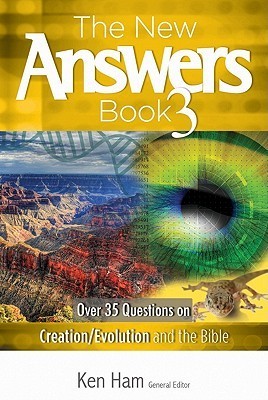What do you think?
Rate this book


Get the important information you need in this compelling third book from the popular Answers series, and learn more about: Global warming, the existence of God, questions for evolutionists, human and chimp DNA, Kinds in Genesis, Mount St Helens and the Grand Canyon, cloning and stem cells, bacteria and viruses, issues of eugenics and abortion, the universe - young or old?, what Noah s Ark looked like...and much more
Learn how to be more effective in defense of scriptural authority and the truth of Genesis as literal history. Join Ken Ham and leading creation scientists like Dr. Jason Lisle, Dr. Andrew Snelling, Dr. Georgia Purdom, Dr. David Menton, Dr. Terry Mortenson, Dr. John Morris, Dr. Steve Austin, Dr. David DeWitt, Dr. Danny Faulkner, Dr. Joe Francis, and others as they provide simple and empowering answers to these and other popular questions of faith in our culture today.
Other exciting books available in the best-selling series: The New Answers Book 1, and The New Answers Book 2, with over 50 additional questions and answers.
300 pages, Paperback
First published February 1, 2010